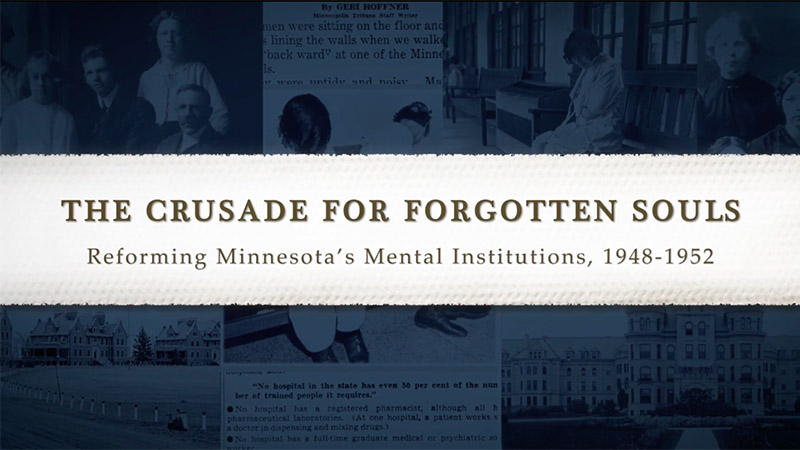In the 1800s, states across the nation began building mental health hospitals to house people with disabilities and mental illness. There was little research or knowledge at the time about the causes or treatment for people with these conditions. But after years of neglect, these state funded hospitals became houses of horror for the people confined there. People were subject to reprehensible conditions including mechanical restraints, solitary confinement and meager diets of watery stew.
After World War Two, Quakers, Unitarians and conscientious objectors began to take action on these abject conditions that Life Magazine called a shame and disgrace. By the mid-1940s, a small group of Minnesota reformers emerged from the ranks of the Unitarian church to put a stop to these atrocities. They appealed to Minnesota Governor Luther Youngdahl, and he championed their cause.
Based on the book by Susan Bartlett Foote, "The Crusade for Forgotten Souls" explores Minnesota's institutional reform efforts from 1948 to 1952. Watch the full documentary to see the story of how a small group of reformers and an enlightened governor made Minnesota come out of the darkness and begin better treatment practices.
| This email was sent to [email protected] using GovDelivery Communications Cloud on behalf of: Minnesota Department of Administration · 200 Administration Building 50 Sherburne Avenue · St. Paul, MN 55155 |  |

